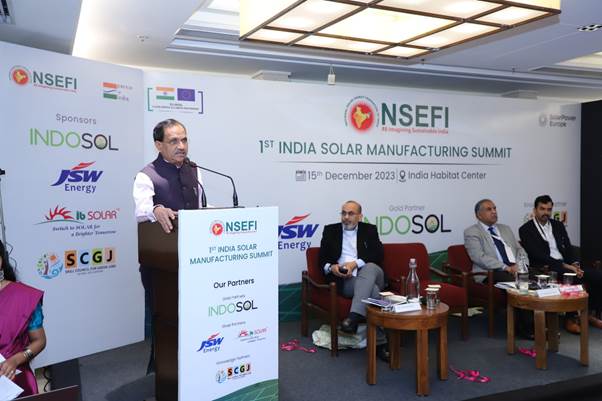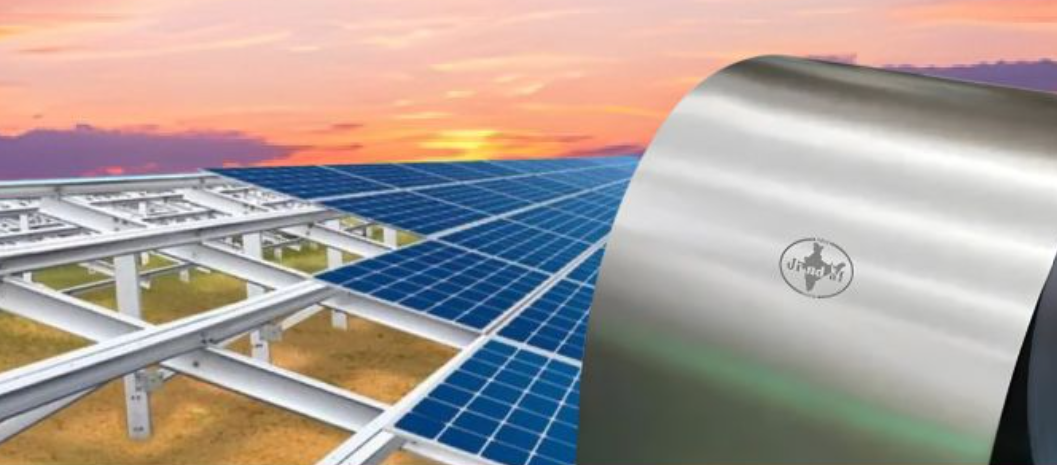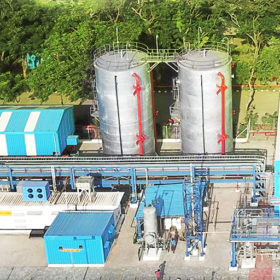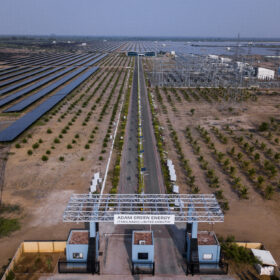Schemes like production-linked incentives (PLI) for high-efficiency solar panel manufacturing with a budget outlay of INR 24,000 crore ( around $2.89 billion) will boost indigenous production of solar panels, said Bhagwanth Khuba, union minister of state for new & renewable energy, in his keynote address at a Solar Manufacturing Summit organized jointly by National Solar Energy Federation of India (NSEFI), Solar Power Europe, and EU India Clean Energy and Climate Partnership.
The PLI Scheme is being implemented in two tranches. Tranche-I has an outlay of INR 4,500 crore, under which Letters of Award have been issued for setting up of 8,737 MW of fully integrated solar PV module manufacturing units. For Tranche-II with an outlay of INR 19,500 crore, Letters of Award have been issued for setting up 39,600 MW of fully/ partially integrated solar PV module manufacturing units.
The minister exhorted the industry to be reasonable in the pricing of solar modules and to not take undue advantage of basic customs duty by spiking domestic panel prices. He also spoke of the need to ensure competitive prices for domestic developers.
The minister said the government is committed to ensuring sustainability and a win-win situation for all. “The government is in continuous consultation with all stakeholders, taking inputs and listening to advice from everyone and then striving to ensure justice to everyone,” he added.
On the occasion, the minister launched a report on PV Supply Chain Resilience & Sustainability–India-EU Cooperation Study.
Khuba said, solar manufacturing is an emerging sector, especially in India, and that India has been both setting new targets at COP and attaining them, keeping in mind the needs of its growing population and the goal of attaining net zero by the year 2070.
The minister assured investors of a stable government and policy certainty in the years to come and exhorted them to tap into the opportunities available.
This content is protected by copyright and may not be reused. If you want to cooperate with us and would like to reuse some of our content, please contact: editors@pv-magazine.com.








By submitting this form you agree to pv magazine using your data for the purposes of publishing your comment.
Your personal data will only be disclosed or otherwise transmitted to third parties for the purposes of spam filtering or if this is necessary for technical maintenance of the website. Any other transfer to third parties will not take place unless this is justified on the basis of applicable data protection regulations or if pv magazine is legally obliged to do so.
You may revoke this consent at any time with effect for the future, in which case your personal data will be deleted immediately. Otherwise, your data will be deleted if pv magazine has processed your request or the purpose of data storage is fulfilled.
Further information on data privacy can be found in our Data Protection Policy.